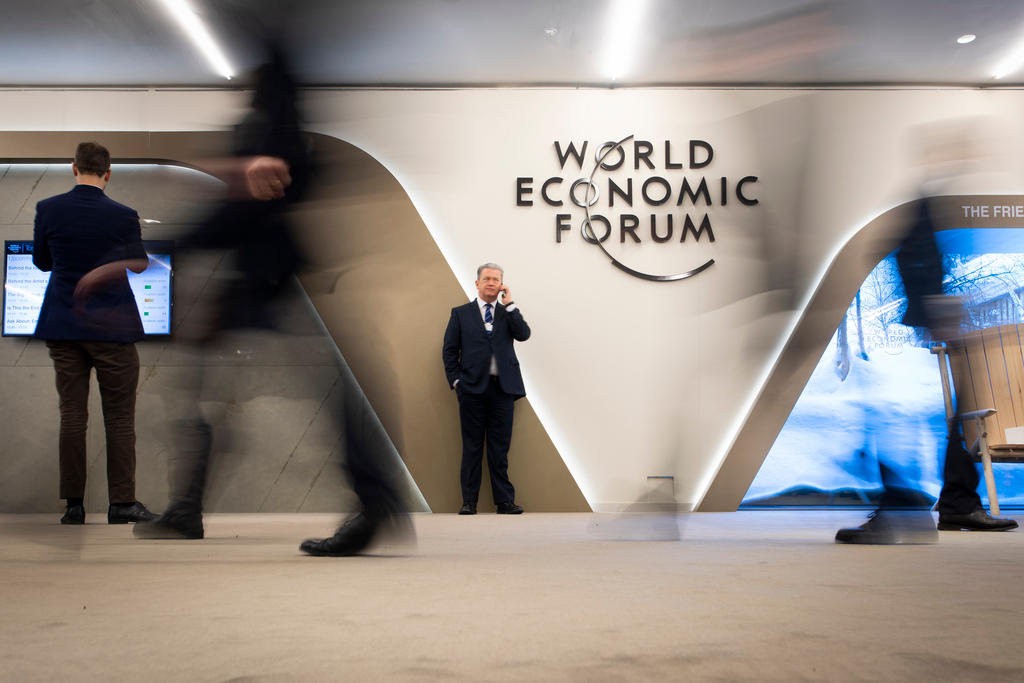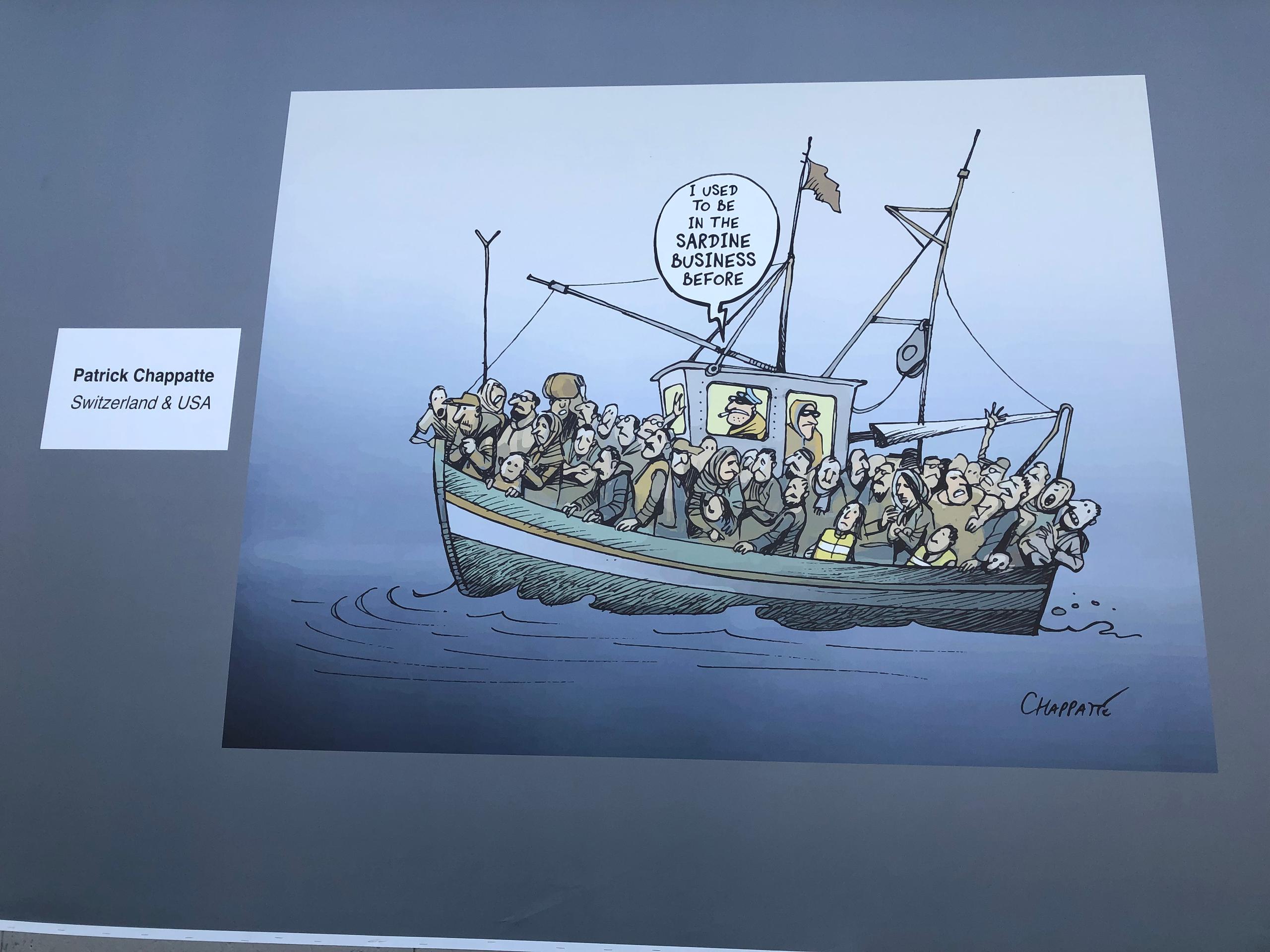
You asked, we answer: what really happens in Davos?

We received numerous questions from readers that we investigated from the World Economic Forum (WEF). Here are answers to a selection of them.
What’s the global economic outlook and the chances for a major asset crash to happen?
On the evening before the opening of the WEF in Davos, the International Monetary Fund announced that the global economy was growing slower than expected. Christine Lagarde, head of the IMF, compared the current economy to a cross-country skier who’s hit some bumps and is struggling to keep from careening off course.
She said, “Does that mean a global recession is around the corner? No. You have an economic picture with a clear message – address remaining vulnerabilities and be ready if a serious slowdown materialises.”
Climate change is a real and present danger. When are [WEF delegation] members going to stop lying and lobbying against the clear evidence? How much of an issue was this in Davos?
Although climate change had a prominent place on the agenda at Davos, business and government leaders seemed to be consumed by the geopolitical climate including the US-China trade conflict and growing populism. But 16-year old climate activist Greta Thunberg captured the media’s attention and with that, raised the urgency and importance in the eyes of leaders. On Friday, when asked by the media if she felt that she had been heard by leaders at Davos, she said, “I think I have been heard but I am not sure I have been listened to.”
Her words and actions, including a school strike in Sweden, have inspired youth in Switzerland as well. When asked, about why she has captured the attention of leaders, she simply said, “because I am a child” and that people feel guilty when they think about future generations.
“In places like Davos, people like to tell success stories but their financial success has come with an unthinkable price tag. On climate change, we have to acknowledge we have failed.” – 16 year old climate activist @GretaThunbergExternal link #WEF19External link pic.twitter.com/AYZWgyNCReExternal link
— Jessica Davis Pluess (@JPluess) January 25, 2019External link
The World Economic Forum is held every year as a rule in Davos. What are some of the economic outcomes of the meetings thus far?
The WEF has been held in Davos every year except for 2002, when it was hosted in New York out of solidarity following the 9-11 terrorist attacks.
In terms of the economic impact, there is first the impact on the local and national economy. WEF reported a few years ago that the annual meeting contributes CHF 45 millionExternal link ($45.1 million) to the local Davos economy and CHF 70 million to Switzerland’s economy overall.
With regards to the impact of WEF on the global economy, here’s a look at some of the biggest milestones achieved at WEF over the years. Last year, the WEF put together a summaryExternal link of the impact of the 2018 annual meeting.
Will the robot era affect middle class citizens?
Swiss-based robotics and technology company ABB held an interesting session on the sidelines of WEF this year that captured some of the ways in which automation, including robots, will affect jobs. The presentation quoted McKinsey Global Institute research that found that by 2030, 400 million jobs will be destroyed while another 965 million jobs will be created because of automation. Here’s an interesting pieceExternal link on how robots are expected to affect jobs and how workers can prepare for the robot age.
We also love this cover of Time Magazine that says more than words could:
Did anyone at the Forum speak about the refugees in the Mediterranean Sea?
The plight of refugees in the Mediterranean was not high on the agenda this year compared to years past. Leaders at WEF seemed quite consumed by growing trade tensions and rising populist governments and what that means for the future of global cooperation.
Participants could participate in a simulation called “a day in the life of a refugee” and one of the co-chairs came to Davos for four days from the Kakuma refugee camp in Kenya. Here’s more about his storyExternal link. This interview with Kelly Clements of the UN Refugee AgencyExternal link during WEF also offers a sense as to how important the migration topic was on the agenda.
This cartoon from Swiss artist Patrick Chappatte was displayed outside the WEF Congress Centre:

Was the WEF pledge for gender equal delegations respected this year? (Not only in terms of the number of female versus male attendees, but also the number of panelists and guests).
Unfortunately, Davos is still a boys’ club in many ways. Women make up just 22% of participants at the WEF, which is only a 1% increase from 2018. WEF aimed to have women represented in every session and at the pre-meeting press conference said that 95% of sessions had at least one women. However, we noticed that women were often tasked with moderating sessions instead of sharing expertise as a panelist alongside others in many of the sessions.
Saadia Zahidi, head of social and economic agendas at WEF, told us that less than a quarter of this year’s WEF attendees are women despite efforts by her team to increase female participation.
“That is nowhere near sufficient representation,” Zahidi says. “The fundamental issue is that the pipeline to leadership is currently broken.”
Pakistani filmmaker Sharmeen Obaid Chinoy, who was attending her sixth annual meeting, said that although the numbers haven’t increased as much as she would have hoped, she has noticed that the Forum is inviting more female cultural leaders to create more diversity in the type of women who are attending.
Another cartoon displayed at WEF, this one by Italian cartoonist Marilena Nardi, commented on the role of women at the Forum and in society:


In compliance with the JTI standards
More: SWI swissinfo.ch certified by the Journalism Trust Initiative



























You can find an overview of ongoing debates with our journalists here . Please join us!
If you want to start a conversation about a topic raised in this article or want to report factual errors, email us at english@swissinfo.ch.